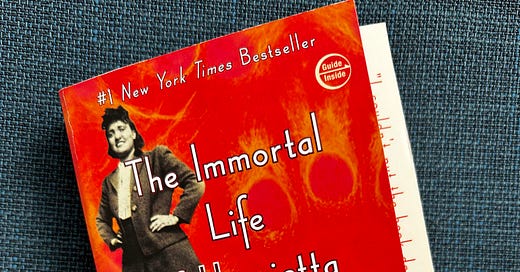The Most Influential Woman In Science
You will not find her name on the cover of any science textbooks, you will not find her word about the Nobel Prize winners, and no invention bears her name but she changed the scientific world.
You will not find her name on the cover of any science textbooks, you will not find her name among the Nobel Prize winners, and no invention bears her name. Henrietta Lacks changed science, not for anything she did; it was for who she was – her immortality. In fact, she didn't know she had changed the world up to her death.
Henrietta Lacks educational journey ended in sixth grade. She was a poor African-American woman who lived in Virginia. She was the second child in a family of 10 children. She had five children, and in 1951, she was diagnosed with cancer. A diagnosis that will cut her life short and change the world. In February 1951, Henrietta Lacks cells were taken to a certain Dr. George Gey, a researcher studying the growth of human cells outside the human body. His big challenge for a very long time was that cells could not live for long outside the human body. In Henrietta Lacks cells, he encountered something extraordinary – her cells lived for days. This was mind-blowing. He knew this would change his research and science as he knew it. Her cells were aggressive; they could live for long in any environment and be divided multiple times. There was one big problem – no one ever told Henrietta Lacks that her cells were taken from her and would be used for research. She died without ever knowing or granting any permission. And because she was a poor African American woman whose family was mostly uneducated, there was hardly ever any concerted pushback.
Henrietta Lacks died on October 4, 1951. Her story will remain unknown for the next half century until 2010, when Rebecca Skloot tells her story in full. Within the scientific community, HeLa cells are widely and widely used, yet almost no one knew her story in detail. Rebecca Skloot was a biology student who heard about HeLa cells and decided she must tell the story of the woman behind these cells.
By the time Rebecca Skloot heard of HeLa cells, HeLa cells had been in circulation for decades already. The cells have helped in improving the lives of millions of people. It was instrumental in developing vaccines such as the Polio vaccine that have saved the lives of millions of children; it was instrumental in HIV/AIDS treatments; it was instrumental in gene mapping, the process that unravels the language of God; it has also been instrumental in cancer research, in developing new cancer drugs and treatments. HeLa cells were used to develop products that made millions for companies while Henrietta’s family lived in poverty.
For many years, the cloud of Henrietta Lacks hung over her family. Her family knew their mother had made a big contribution to science, but they didn’t know how. Some even believed she was literally still alive. Due to so many factors, they could not fight for her legacy correctly. All of that changed with the arrival of Rebecca Skloot. Writers are powerful. Without writers, we may never be able to fully understand the world; worse, many injustices will go unnoticed. Rebecca took on the project of writing this book. It changed everything. Her book helped to raise awareness, bring the family together, and was pivotal in changing public opinion about HeLa cells. This year, the Henrietta Lacks family settled with the biotechnology firm that owns the rights to HeLa cells (isn’t it funny, how can they own HeLa cells without the family's consent?). This is justice 70 years after the facts. It is a bit more complicated than that; when the cells were taken from Henrietta Lacks, Doctors didn’t need permission to do so.
What I feel is that the settlement cannot rectify the cloud of pain and trauma that hung over the Henrietta Lacks family for all these years. I was sad to read at the end of the book that Deborah Lacks did not live to see the completion of the book by Rebecca Skloot, and she did not live to see the settlement. When you read the book, you see her pivotal role. She was such a darling of a woman, fierce, curious, and a fighter for legacy!
This book was a fascinating read. It was good writing at its peak; the story was a pain, and it is instrumental in helping us understand the ethical issues in medicine.
Henrietta Lacks changed the world with her cells. Deborah Lacks believed that God blessed her mother with this gift to make the world a better place. I agree with her. I have just one thought to add: Her story is proof that we humans do not know how to treat God’s gift to us. We didn’t treat Henrietta Lacks right. We didn’t deserve her.




